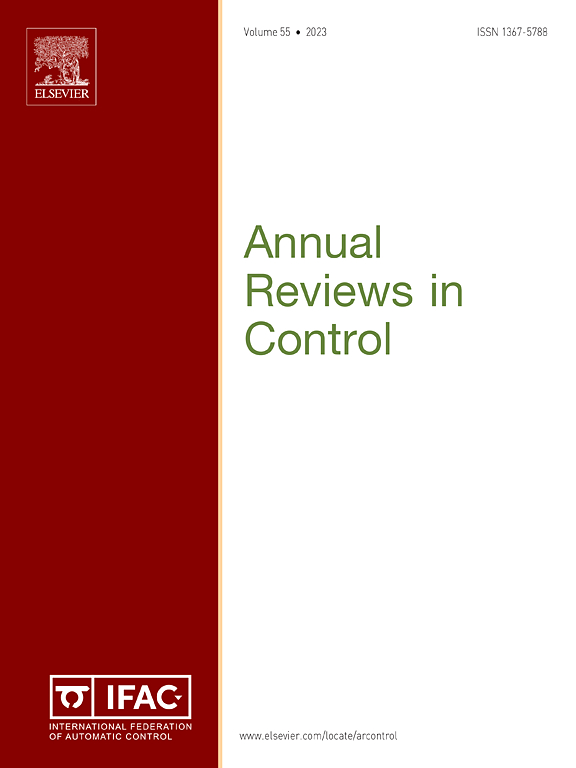Smith predictor based control of multi time-delay processes
IF 10.7
2区 计算机科学
Q1 AUTOMATION & CONTROL SYSTEMS
引用次数: 0
Abstract
In the process industry, the presence of time-delays is unavoidable and these delays may happen at the input, output or at any internal point of the process. As a result, the output/input relationship may present multiple time-delays. The Smith Predictor is well recognized as the best approach to deal with time delays but its use is mainly limited to process models where the time delay is separated from the rest of the model. In this paper, a comprehensive review of the control of processes with multi time-delays has been done, identifying key research gaps in the literature. In particular, the case of multi time-delays in a single forward/feedback path is an area that remains insufficiently addressed. By means of precompensators, the initial process model is transformed and reduced to single time-delay models. Then, the Smith Predictor approach can be applied being proposed to design the final control structure. Some simplifications in the join implementation of the predictor and the precompensator are suggested. The procedure is also extended to deal with MIMO plants presenting multi time-delays in the transfer matrix elements. In this way, a general solution to design the control for multi time-delayed processes is presented and some examples illustrate the procedure. Some conclusions are drafted along with open problems for future research.
基于Smith预测器的多时滞过程控制
在过程工业中,时间延迟的存在是不可避免的,这些延迟可能发生在过程的输入、输出或任何内部点。因此,输出/输入关系可能呈现多个延时。Smith Predictor被公认为是处理时间延迟的最佳方法,但它的使用主要局限于时间延迟与模型其余部分分离的过程模型。在本文中,对多时滞过程的控制进行了全面的回顾,确定了文献中的关键研究空白。特别是,在单个前向/反馈路径中存在多时延的情况是一个仍然没有得到充分解决的领域。利用预补偿器对初始过程模型进行变换,简化为单个时滞模型。然后,应用Smith预测器方法设计最终的控制结构。在预测器和预补偿器的连接实现中,提出了一些简化的建议。该方法还扩展到处理传输矩阵元素中存在多时延的MIMO对象。通过这种方法,给出了多时滞过程控制设计的通解,并举例说明了设计过程。一些结论和有待进一步研究的开放性问题被起草。
本文章由计算机程序翻译,如有差异,请以英文原文为准。
求助全文
约1分钟内获得全文
求助全文
来源期刊

Annual Reviews in Control
工程技术-自动化与控制系统
CiteScore
19.00
自引率
2.10%
发文量
53
审稿时长
36 days
期刊介绍:
The field of Control is changing very fast now with technology-driven “societal grand challenges” and with the deployment of new digital technologies. The aim of Annual Reviews in Control is to provide comprehensive and visionary views of the field of Control, by publishing the following types of review articles:
Survey Article: Review papers on main methodologies or technical advances adding considerable technical value to the state of the art. Note that papers which purely rely on mechanistic searches and lack comprehensive analysis providing a clear contribution to the field will be rejected.
Vision Article: Cutting-edge and emerging topics with visionary perspective on the future of the field or how it will bridge multiple disciplines, and
Tutorial research Article: Fundamental guides for future studies.
 求助内容:
求助内容: 应助结果提醒方式:
应助结果提醒方式:


